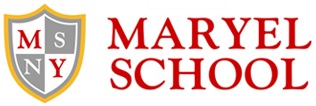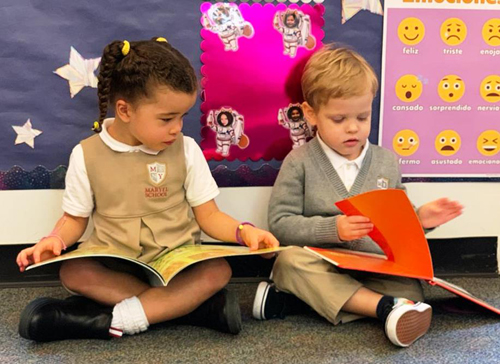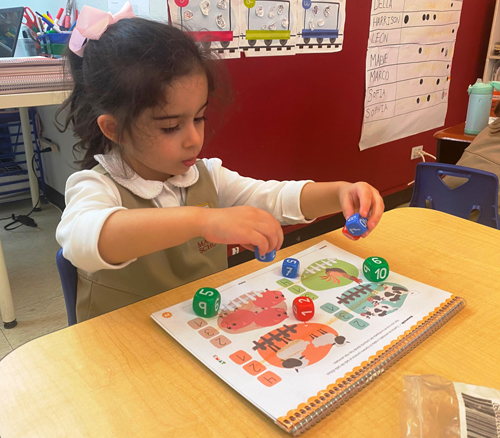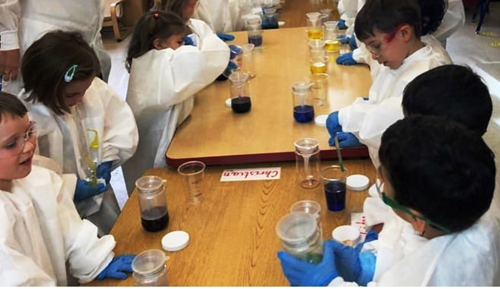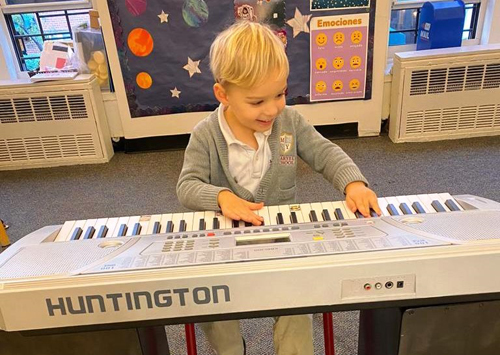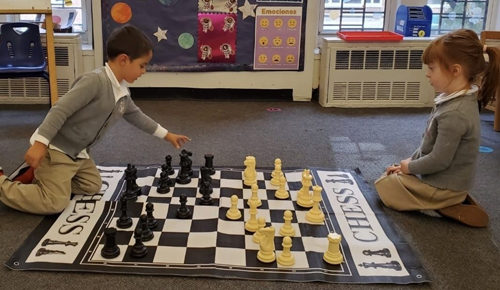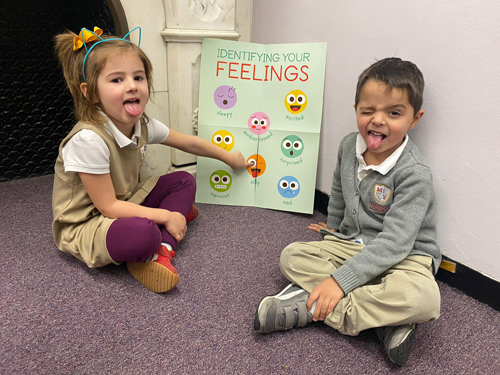Preschool (Pre-K3 – Pre-K4)
The early years provide a rich opportunity to cultivate an enduring love of learning. In Preschool our youngest students are immersed in a nurturing, teacher-directed environment that integrates structured learning with creative play and freedom to explore.
Our Preschool program combines Spanish immersion with a proven readiness curriculum which prepares children for a successful elementary school experience. Maryel’s amazing NYS certified teachers provide an environment where our little ones feel safe and loved. The small class size (10 students), and two teachers assure that our little ones get the individualized attention that they deserve.
We know that early immersion is the most effective way to help students attain comfort and mastery in language and culture. Maryel’s preschool program uses the full immersion model and it is open to students at any level of Spanish as young minds pick up a second and even third language quite naturally.
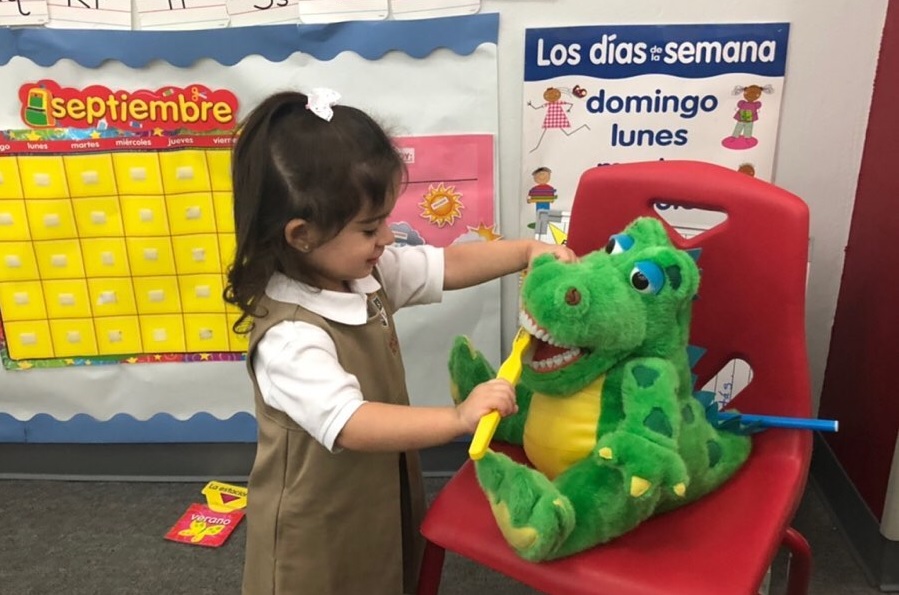
Parents will not just hear from their sons and daughters about how much fun they had and what they learned, but are invited to be active participants — through parent time every morning to a range of special events, picnics, theme parties, and book-reading activities.
Maryel’s preschool curriculum is divided into eleven areas of learning:
